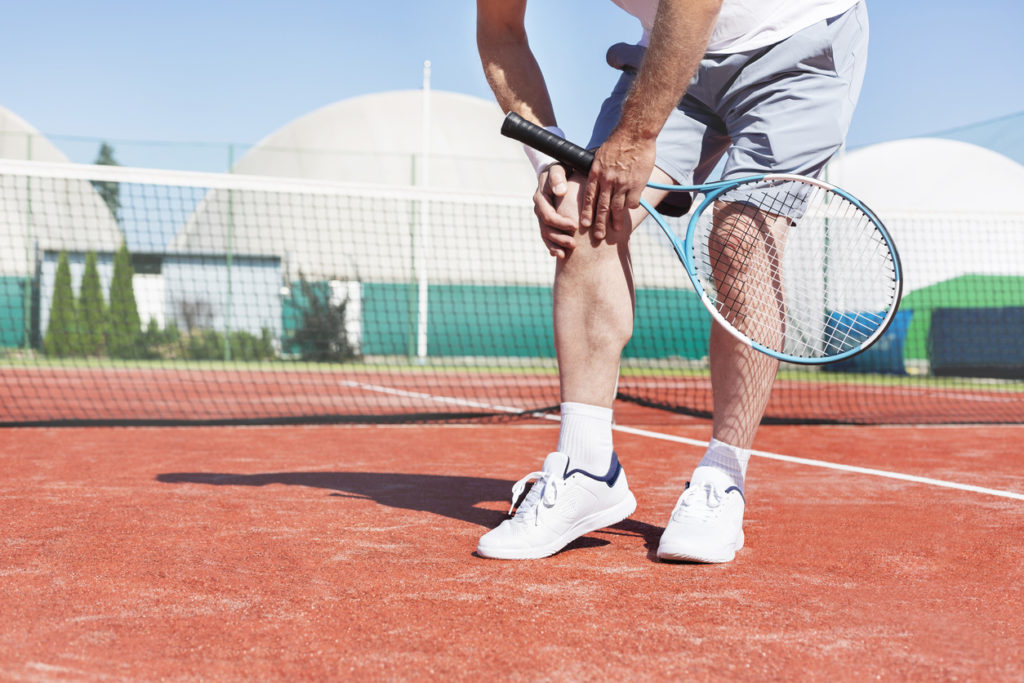The Importance of Treating Sports Injuries According to an Orthopedic Surgeon
For sports injuries, now’s the time to get the issue fixed. Get back in the game faster, and prevent future injury, with a visit to an orthopedic surgeon specialized in sports medicine.
According to Dr. Jennifer Swaringen, an orthopedic surgeon at Alexander Orthopaedic Associates, “Nagging sports-related injuries can be painful and even debilitating, and there’s no time like now to address the problem.” Below, Dr. Swaringen discusses some of the other common questions relating to sports injuries.

What is the most common sports injury that you see?
Shoulder pain is a very common condition we treat in our practice. A frequent cause of this pain, especially as people reach their 40s and beyond, is related to the rotator cuff tendons and associated bursae and bone spurs.
Rotator cuff injuries are more common as we age, part of the wear and tear process of the shoulder. We often find rotator cuff tears in athletes, like people who’ve played tennis or baseball or who’ve been weightlifters; or in workers who do things overhead, like painters or
carpenters.Younger patients with rotator cuff tears are more likely to have had an acute trauma, fall or sudden jerking movement applied to the arm, or they’ve lifted something that was too heavy to lift safely.
With competition heating up at younger ages, injuries are becoming more frequent, and more important to treat early. Here are the 5 most common pediatric sports injuries we see and what to do if your child suffers from one.
What other types of sports-related issues do you see?
We are experts in helping patients with knee issues, including doing knee replacements, and also help many patients with hip problems.
What are some treatment options for sports-related injuries?
Nonsurgical treatment options can include rest, activity modification, nonsteroidal anti-inflammatory drugs, physical therapy or cortisone injections. These methods can be very effective in relieving pain and restoring functionality. At the same time, small to medium tears have good reported outcomes with physical therapy and surgery.
What are the chances that I will have to have surgery?
Proceeding with surgery is a decision made between the patient and doctor, and many issues can be resolved without surgery. We take into consideration factors like the amount of pain, and whether pain is persisting despite passage of time, therapy, medication, or injections.
We also consider the patient’s activity level with work, sports and hobbies, along with the level of the patient’s degree of weakness or loss of function. The size of a tear, the quality of the tendon and muscle tissue, and how recent the tear occurred are all important factors to consider, too.
Why should someone with an issue see you now?
It’s never a negative to come visit us and have us determine the exact nature of the issue. In many cases, there are many steps we can take that won’t require surgery. There is no way to know until you see us, though.
Why should someone go to Alexander Orthopaedics?
We have quality, highly experienced surgeons, and both our surgeons and staff have a focus on excellent service. It’s important to check out the backgrounds of the doctors as you make your decision on where to go for help.
I received both a Bachelor of Science and medical degree at Emory University, and completed a General Surgery internship and Orthopaedic Surgery residency at the University of Michigan. I then went on to complete a sports medicine fellowship at Minnesota Orthopaedic Sports Medicine Institute in Minneapolis.
If you are suffering from a sports injury, old or new, schedule an appointment with us today and we can help get you on the road to recovery.
